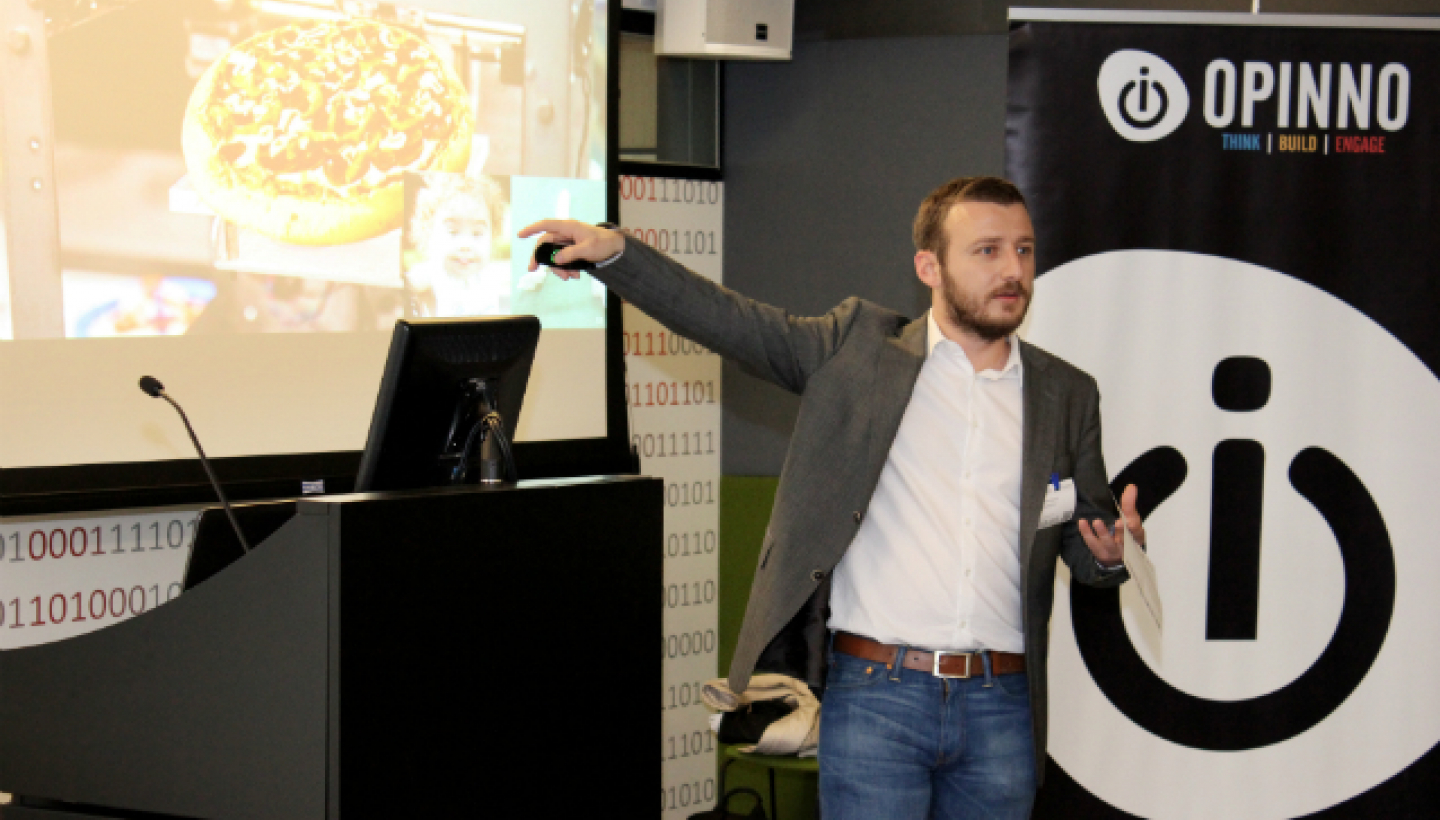The lastest New Ways of Working sessions, organized by Google for Work focused on technological change within the industrial sector and the service industry
Some technological changes have a profound impact on society as well as affecting certain economic factors of production. History is full of examples: the birth of agriculture, the industrial revolution and the creation of the internet to name a few. Given that advances tend to generate further advances, it is not surprising that in recent years the rate of advancement has increased exponentially.
To analyze the impact of this transformation Opinno and Google for Work have organized a series of workshops entitled “New Ways of Working” to examine how companies react to technological changes and to discuss their innovation strategies. The industrial sector and the services industry were the focus of the most recent sessions. These workshops took place on the 21st of April and 5th of May respectively and were attended by prominent leaders of both sectors.

The service industry workshop emphasized the importance of customer experience and the revolution sparked by shared economies. This new form of consumerism has meant that “people who no longer trust institutions now choose to travel by getting into the cars of perfect strangers”, according to Vice-president of Opinno Think Tomasso Canonici. This new reality “forces every company that wants to regain the trust of their customers to innovate”.
Improving customer experience was Iberia´s main objective when they decided to launch an innovation process that involved 8,000 customer facing employees. “Our most important sales channel is our customers´ opinion of us,” says Iberia´s Customer Experience Director David Arconada. To achieve success, amongst other strategies, the company has implemented a series of protocols for each operational area, from flight staff to call center operator, which they can reference using an app.

One of the pillars of innovation at the customer management company Salesforce focuses on the quarterly release of a new version of their Customer Relationship Management platform (CRM) to incorporate and deliver new and improved features. To avoid the need to migrate existing data with each release, the underlying databases remain stable. Francisco Reverte, Travel and Transportation Director at Salesforce, explains, “No one asks our customers what version they are working with anymore because they always have the latest version. This spring´s release for example incorporates the ability to access the database from smartwatches and other wearables.
The European Design Institute (IED as per its name in Italian) also embarked upon an innovation process to help students to understand the global marketplace and its needs. The teaching and learning director of the Academic Innovation department in IED, Pablo Jarauta, shared his experience: “We have incorporated a culture of entrepreneurialism into all of the traditional design processes”. As a result, professors are no longer limited to teaching in the classroom; they also connect students with enterprises and government agencies in order to build a community around each project.
Industry innovates
In the workshop held on April 21st, leaders from the industrial sector explained how their companies have developed innovation processes to overcome times of crisis and to adapt within a marketplace where the needs are constantly shifting.
That is exactly what Repsol did in 2008 within their Chemical branch with a program to drive innovation from within and to recruit new talent using programs like the Entrepreneurial Fund. “We created new roles in the company and a transversal structure with innovation cells embedded within each operational area”, explains Innovation and Improvement Manager for Repsol Chemical Alicia Casado. The new organizational chart promotes innovation and creates the right dynamic to allow the employees to propose new ideas.
The Pascual group has also driven entrepreneurialism internally by including its workers in the company´s innovation initiatives. To this end they developed the Volare kit, comprised of a series of tools, techniques and protocols that allow any employee within the organization to innovate. “It can be used by a factory operator to improve the logistics of storeroom management and by the CEO to improve decision making processes,” according to a member of the Human Relations, Quality and Quality Control team.
The animal feed distribution company Affinity PetCare took advantage of the digital revolution to drive innovation by launching Wow Project, an intraentrepreneurialism program through which employees can share their ideas. Teresa Niubó, Human Resources director, explained how this process gave rise to the initiative of sending information to their customers advising them on their pets´ needs at each stage of their life, “to gain customer loyalty”.
Teresa Hernández from Google for Work details how the company sees innovation as an element present in each and every department. “Innovation is not perfect,” Hernández explains, and she adds, “our expectation is not to have the product completely ready, but rather we release it to the marketplace and continue to improve upon the service.” This is how services such as Android and Drive were launched and later improved based on feedback from both workers and external users.
In the years to come, technological advances will continue to transform key sectors of our society. Companies that do not want to fall by the wayside will need to promote innovation as a way of staying ahead of these changes, and even of generating change themselves. To this end Opinno will continue to work with companies like Google to analyze these transformations, identifying the keys to understanding how organizations can prepare for change and claim a place in the vanguard of technological evolution.



